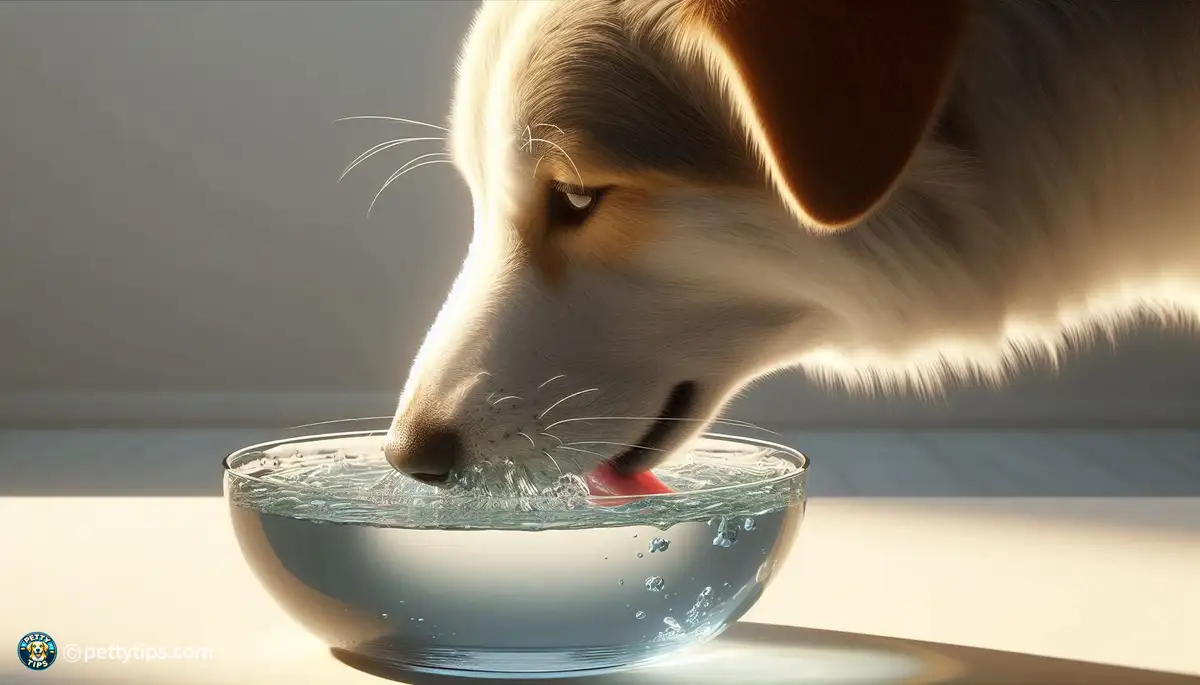
Organic vs. Non-Organic: Making Informed Pet Food Choices
Dorothy Roller - Oct 26, 2024 - 6 min read


Ensuring your pet stays adequately hydrated is essential for their overall health and well-being. Just like humans, pets rely on water for various bodily functions, including digestion, circulation, and temperature regulation. Without sufficient water intake, pets can experience dehydration, leading to a myriad of health issues. As a responsible pet owner, it's crucial to understand the significance of hydration and take proactive measures to ensure your furry friend always has access to fresh, clean water.
Dehydration is a serious condition that can affect pets of all ages and breeds. It occurs when the body loses more water than it takes in, leading to an imbalance in electrolytes and essential minerals. Common causes of dehydration in pets include excessive heat, prolonged physical activity, illness, and inadequate water intake. Left untreated, dehydration can result in serious complications, such as kidney failure, organ damage, and even death. Recognizing the signs of dehydration, such as lethargy, sunken eyes, dry gums, and decreased urine output, is crucial for prompt intervention.
Fresh water is the cornerstone of pet hydration. Unlike humans, who can derive moisture from various sources, such as food and beverages, pets primarily rely on water for their hydration needs. Providing your pet with access to clean, fresh water at all times is essential for maintaining their health and preventing dehydration. Stagnant or dirty water can harbor bacteria and contaminants, posing a risk to your pet's health. Therefore, it's vital to regularly refill your pet's water bowl with fresh water and clean the bowl to prevent bacterial growth.
Several factors can influence your pet's water consumption levels, including their size, age, breed, diet, activity level, and environmental conditions. For example, larger breeds and active pets may require more water to stay hydrated, while older pets or those with certain medical conditions may have reduced water intake. Additionally, pets fed a dry kibble diet may need more water compared to those on a wet or raw food diet. Understanding your pet's individual hydration needs and adjusting their water intake accordingly is key to ensuring they remain adequately hydrated.
Offering your pet access to multiple water sources throughout your home can encourage them to drink more water. Place water bowls in different areas of your house, ensuring they are easily accessible to your pet. Additionally, consider using different types of water bowls, such as ceramic, stainless steel, or BPA-free plastic, to see which type your pet prefers. Some pets may have preferences for certain types of bowls or locations, so it's essential to observe their behavior and adapt accordingly.
In addition to providing fresh water, incorporating moisture-rich foods into your pet's diet can help increase their overall water intake. Wet or canned food contains a higher moisture content than dry kibble, making it an excellent option for pets who may not drink enough water on their own. You can also add water or low-sodium broth to your pet's meals to increase their moisture intake. However, be mindful of your pet's dietary needs and consult with your veterinarian before making any significant changes to their diet.
proper hydration is essential for maintaining optimal kidney function in pets. The kidneys play a crucial role in filtering waste products and toxins from the bloodstream, and adequate water intake is necessary to support this process. Dehydration can strain the kidneys and increase the risk of kidney disease or urinary tract infections. By ensuring your pet stays properly hydrated, you can help reduce the burden on their kidneys and support overall urinary tract health.
During the hot summer months, pets are at risk of heat-related illnesses, such as heat stroke and heat exhaustion. Proper hydration is vital for helping pets regulate their body temperature and stay cool in hot weather. Providing access to shade and cool water can help prevent dehydration and heat-related illnesses in pets. Additionally, avoid exercising your pet during the hottest parts of the day and never leave them unattended in a parked car, as temperatures can quickly rise to dangerous levels.
Ensuring your pet remains adequately hydrated is essential for their overall health and well-being. By understanding the importance of fresh water and implementing strategies to encourage hydration, you can help keep your furry friend happy and healthy for years to come. Remember to provide access to clean, fresh water at all times, monitor your pet's water intake, and seek veterinary attention if you notice any signs of dehydration or illness. By prioritizing your pet's hydration needs, you can ensure they lead a vibrant and fulfilling life by your side.